A report on the PhD course “Critical Urban Theory in Practice” Module II, Sweden Lund 4-8 April 2016
by Dr. Maryam Nastar: Course Organizer, Lund University Centre for Sustainability Studies
The second module of the PhD course, Critical Urban Theory in Practice started off on 4 April 2016 with 8 students from India, UK and Sweden. This module was organized and funded by Lund University Centre for Sustainability Studies (LUCSUS), one of the Right Livelihood College (RLC) campuses. The initiative was also co-funded by the Robert Bosch Foundation through the Global Secretariat of RLC in Bonn, Germany. Further information on the first module can be found in the section Campus-News of RLC Mumbai.
After an introduction to the course by Dr. Maryam Nastar, Dr. Turaj Faran presented elements of social movements and contributing factors to their success and failure. This was followed by Prof. Eric Clark’s lecture on political, historical and economic forces that social movements are up against, within the urban context. On the second day of the course, Dr. Anders Lund Hansen and Emmerik Warburg, from Christiania Researchers In Residence (CRIR.net), led a fieldtrip to Freetown Christiania, in Copenhagen, Denmark. During the excursion, students got to know about the history of the community struggles and the challenges that community activists have faced over the last decades in relation to public spaces and property in Christiania.
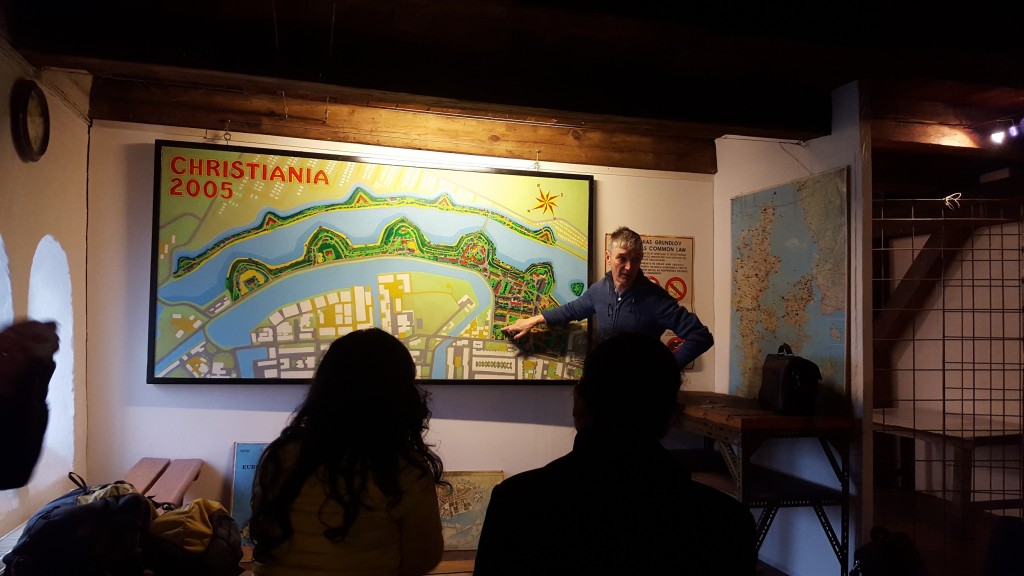
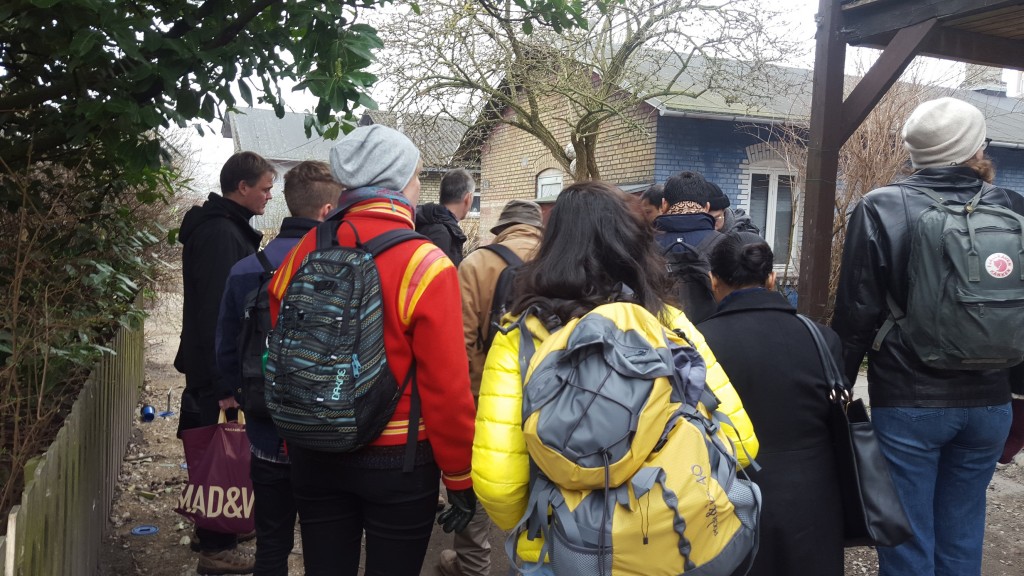
Students during the fieldtrip to Freetown Christiania. Photo by
Dr. Maryam Nastar, LUCSUS.
The fieldtrip and earlier literature reviews formed the basis for seminar discussion on the day after. This was followed by Dr. Maja Essebo’s lecture on instances of struggles for urban spaces in the global North and the notion of the right to the city in practice. By taking off from the field observations and going back to critical urban theory, Dr. Andy Merrifield, the course guest lecturer, expanded on Lefebvre’s notion of the right to the city through an excellent lecture on the origin of the concept and how it is co-opted by different organizations in contemporary urban studies and research.
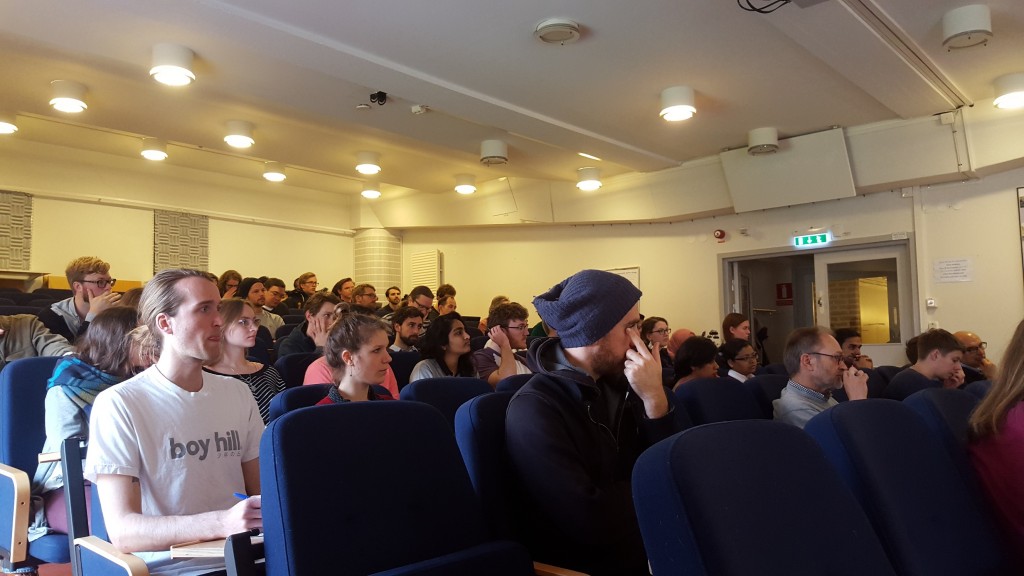
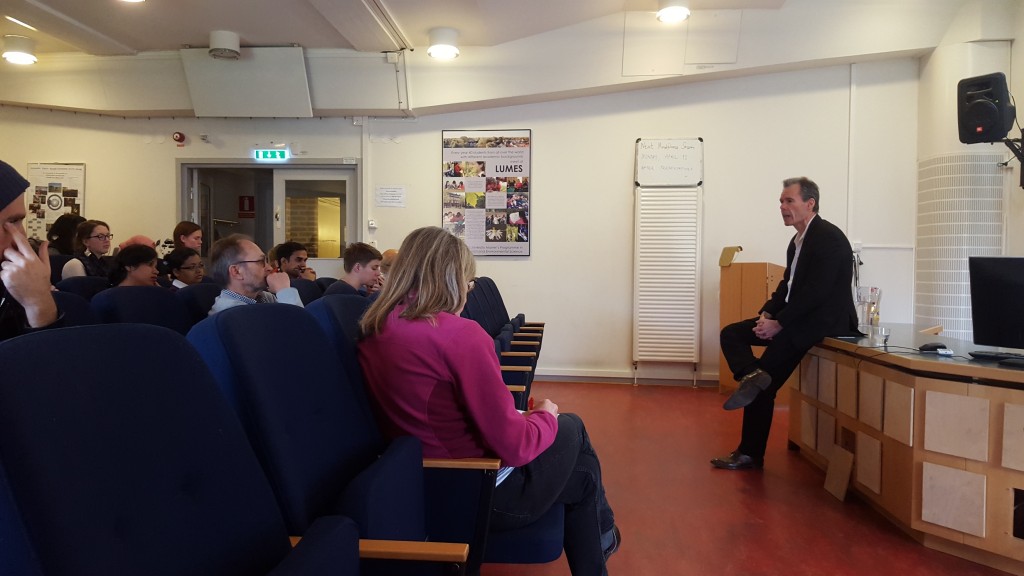
The public lecture by Dr. Andy Merrifield. Photo by Dr. Maryam Nastar, LUCSUS.
On the last day of the course, Dr. Merrifield gave an open lecture about Professional and Amateur Urbanism in our Urban Age, wherein he discussed the dominant camps of urban studies and how critical urban thinkers can contribute to challenging these perspectives. For more info about this public lecture, can be found here.
Finally, Dr. Mine Islar presented a lecture on new vocabulary of citizenship and the figure of activist citizen and the course was ended by the students’ presentations over two main themes: 1.The impact of the transformation of urban spaces on urban struggles and 2. Social movements and citizenship practices that can potentially address the urban issues. Students impressively used the course materials and concepts to apply these themes to the case study of Christiania and they well demonstrated how critical urban theory can be used in analyzing urban challenges and opportunities.
The course organizer would like to thank all the lecturers and students for their contributions to and participation in the course. Particularly, many thanks to Dr. Turaj Faran for his time and support in the planning phase and in participating the course activities which lifted up the level of teaching and learning to the fullest.
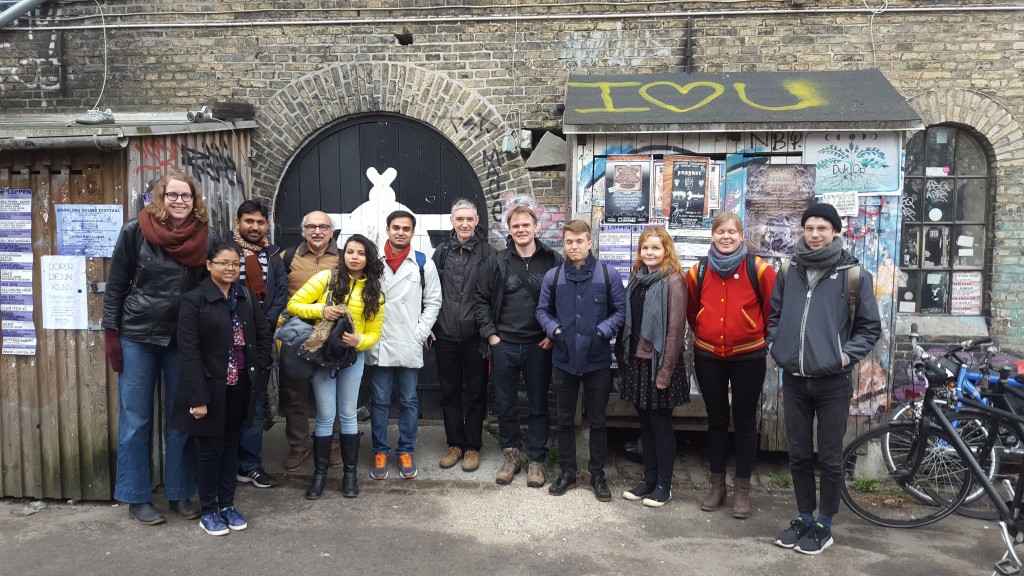
A collective picture of the course participants in Christiania, Copenhagen, Denmark. Photo by Dr. Maryam Nastar, LUCSUS.
![]()
